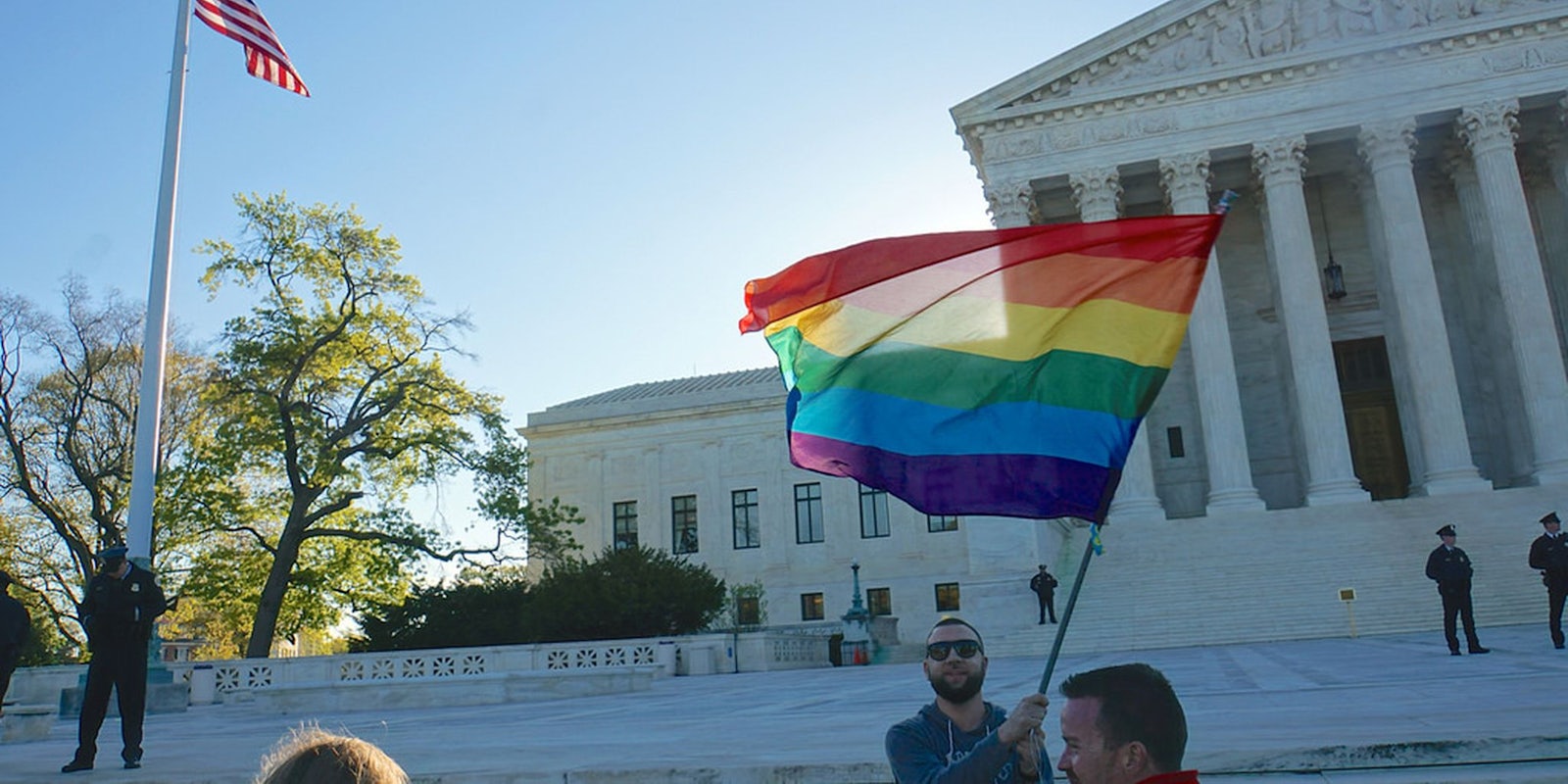A Washington florist who argued it was her religious right to deny a gay couple buying wedding flowers lost her case yesterday at the state Supreme Court.
The decision was unanimous, 9-0, upholding the constitutionality of the state’s 2006 nondiscrimination law and consumer protection act that makes it illegal to turn away customers based on their sexual orientation, race, religion, or gender. Arlene’s Flowers owner, Baronnelle Stutzman, was appealing a lower state court decision, arguing she was exercising her First Amendment rights. However, the court held that her flower arrangements do not constitute free speech.
“As Stutzman acknowledged at deposition, providing flowers for a wedding between Muslims would not necessarily constitute an endorsement of Islam, nor would providing flowers for an atheist couple endorse atheism,” the opinion read. Therefore, following her own line of reasoning, providing flowers for a gay couple would also not constitute an endorsement of same-sex marriage.
The couple, Curt Freed and Robert Ingersoll, as well as Washington State Attorney General Bob Ferguson, sued Stutzman in 2013, after the couple had asked her to do the flower arrangements for their wedding. The two had been longtime customers of Stutzman’s and were surprised to be turned away. Stutzman explained in a deposition, “I just put my hands on his and told him because of my relationship with Jesus Christ, I couldn’t do that, couldn’t do his wedding.”
The case decision is of particular interest at a time when the Trump administration has been vocal about “religious freedoms” and the LGBTQ community is concerned about what that means for them. Vice President Mike Pence, a longtime supporter of anti-LGBTQ legislation, recently said that a new executive order on “religious liberty” isn’t necessarily off the table—and such an order could challenge non-discrimination laws like the one that protected Freed and Ingersoll. Stutzman’s lawyers, the Alliance Defending Freedom, is fighting similar anti-LGBTQ laws around the country on the basis of religious freedom.
Her lawyers also said they plan to take her case to the U.S. Supreme Court.


